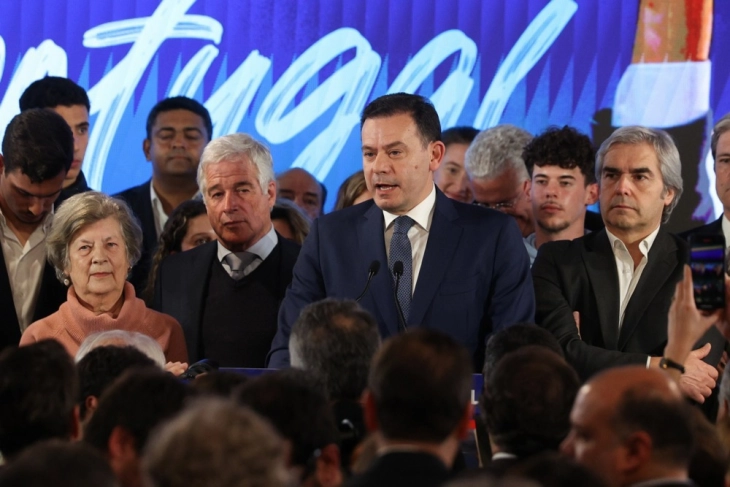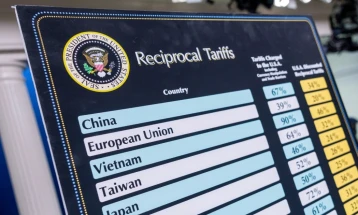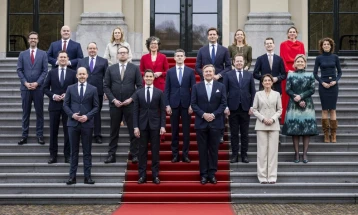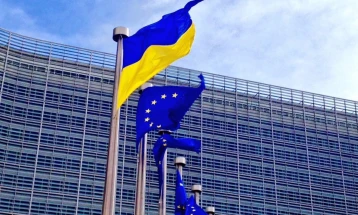Portugal's centre-right wins tight election as far-right surges
- Portugal's ruling Socialists have been ousted after eight years in power and the far-right party Chega (Enough) saw its support surge in Sunday's nail-biter parliamentary elections.
- Post By Ivan Kolekevski
- 09:11, 11 March, 2024

Madrid, 11 March 2024 (dpa/MIA) - Portugal's ruling Socialists have been ousted after eight years in power and the far-right party Chega (Enough) saw its support surge in Sunday's nail-biter parliamentary elections.
The centre-right Democratic Alliance (AD) garnered 29.5% of the vote, narrowly defeating the centre-left Socialist Party (PS) at 28.7%, after more than 99% of the ballots were counted early Monday.
The five-year-old Chega party, led by former television sports pundit André Ventura, improved from just over 7% of the vote in 2022 to around 18% in this election.
The party is set to increase its presence in the 230-seat national parliament in Lisbon from 12 to 46. The Democratic Alliance will have at least 79 seats; the Socialists 77.
Luis Montenegro, leader of the Democratic Alliance, claimed victory, while Socialist rival Pedro Nuno Santos conceded defeat and announced that he would go into opposition.
But it was Chega's third-place finish that was in the spotlight.
Chega's strong performance defied Portugal's reputation in Europe as a bulwark against the right-wing extremism that has made powerful inroads elsewhere on the continent.
Some critics believe that Chega - whose best-known election slogan is "Clean Up Portugal" - has long since veered from the populist right to hard-right extremism.
Ventura and other party representatives scored points in the campaign with rhetoric against immigrants, blaming them for an alleged increase in crime, and diatribes about the "corrupt oligarchy" of the established parties.
Forming a government is likely to be difficult, as neither of the two main parities have said they want to work with Chega given its toxic reputation. Moreover, a "grand coalition" of the two is thought impossible in Portugal as they are seen as having insurmountable policy differences.
Even with the support of smaller parties, the Democratic Alliance will at best be able to form a weak minority government, which would have to be approved by President Marcelo Rebelo de Sousa and parliament.
Given the fraught path ahead, many observers are predicting political gridlock and a fresh election in the summer.
Sunday's snap election was called after Socialist prime minister António Costa resigned in November due to corruption investigations against him and other members of the government.
Photo: EPA







